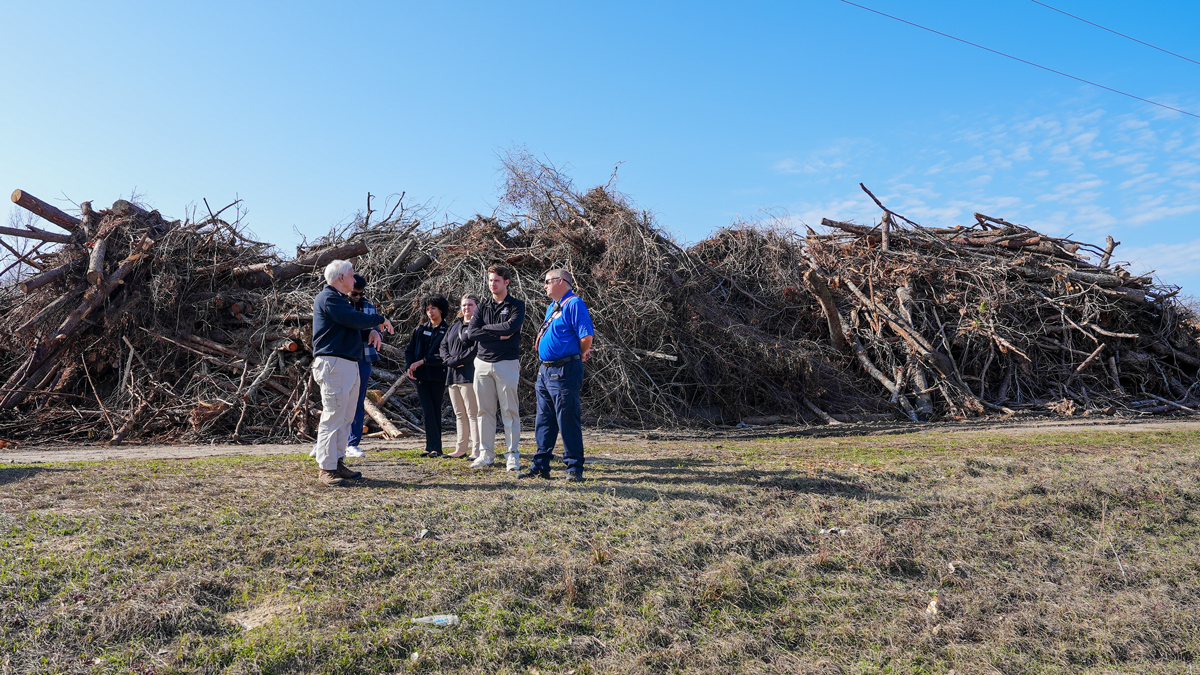Emanuel County had just begun its partnership with the University of Georgia Carl Vinson Institute of Government as a PROPEL community when Hurricane Helene struck Georgia, leaving a path of destruction across the state.
Local leaders found themselves responding to an emergency at a scale their county had never experienced before.
“I don’t think anyone could have been prepared for what happened,” said Emanuel County Commission Chairman Jim Sherrod. “It was unreal.”
Not a single county road was passable in the storm’s immediate aftermath. Communication networks and the county’s entire electrical grid were down. Residents were left without power, water, cell service and other necessities for days. Pecan orchards and thousands of acres of timber—both vital to the area’s economy—were destroyed.
Residents banded together to support each other after the storm in a demonstration of community unity.
“Everyone stepped up. It was amazing to see,” Sherrod said. “It was hard work, but it brought a lot of people together. Everyone was coming up with ideas to help.”
When Emanuel County joined PROPEL, leaders had originally planned to address economic development projects. But at the county’s first PROPEL committee meeting with the Institute of Government team in November 2024, just two months after the storm, talk turned to community resilience instead.
“PROPEL’s ability to pivot and support us with this need has been beneficial,” said Emanuel County Administrator Guy Singletary. “In turn, we hope to end up with a plan that we can use to apply for hazard mitigation grants and that will help us be more prepared in the future.”
PROPEL (Planning Rural Opportunities for Prosperity and Economic Leadership) guides rural cities and counties through a multi-step process to develop and implement a plan to advance their economies and helps communities build resiliency and capacity for long-term economic success. Through the PROPEL Rural Scholars program, undergraduate UGA students work alongside UGA Public Service and Outreach mentors and community leaders on applied research projects in participating communities.
“Through PROPEL, the Institute of Government partners with rural communities across Georgia, leveraging the power of local experts and the resources of the university to address complex challenges,” said Rob Gordon, director of the Institute of Government. “Our Rural Scholars play an important role in this work, providing fresh perspectives and an eagerness to engage and learn.”
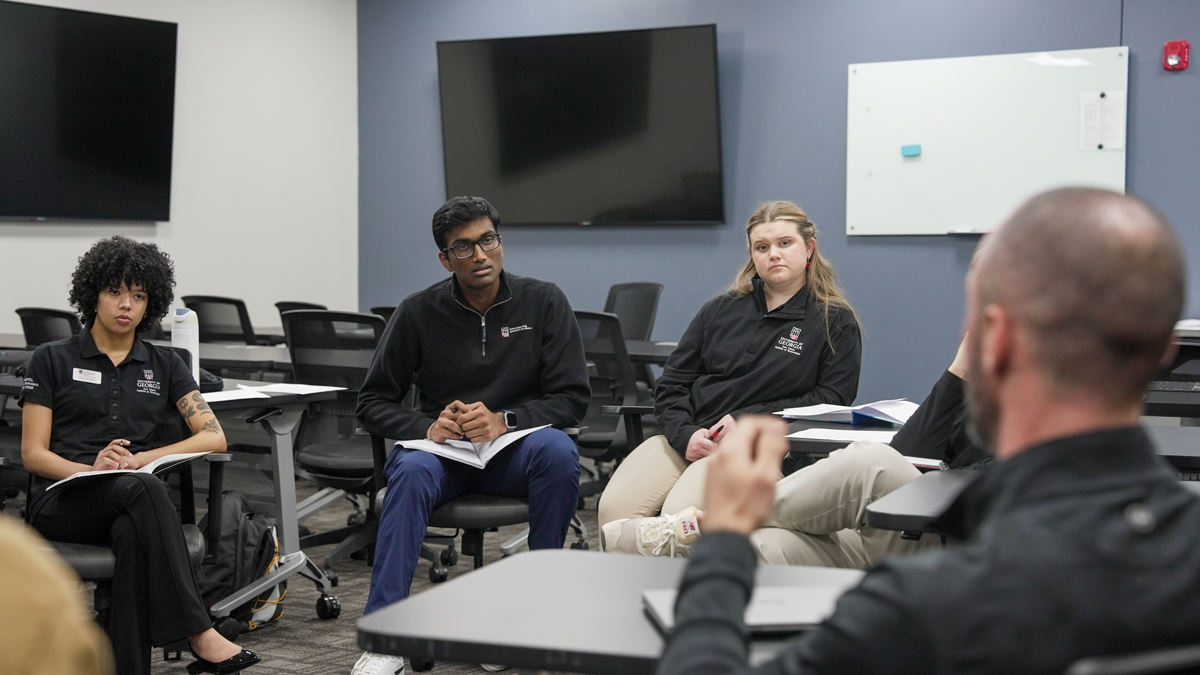
From left to right: Taylor Siefken, Yash Sajjan and Macy Hall listen as Emanuel County officials speak about the county’s storm response at a community meeting. (Photo by Sara Ingram)
After the storm, Emanuel County’s PROPEL steering committee and the Institute of Government refocused their work to analyze the local storm response. A team of four PROPEL Rural Scholars gathered data to draft an after-action report, improvement plan and emergency contact list.
As part of the process, the students visited Emanuel County to meet with more than two dozen community members who were part of the storm response and recovery efforts. Attendees included law enforcement, firefighters and other first responders; city and county staff; elected officials; and representatives from businesses and other community organizations.
The students also visited a debris collection site, piled high with tree limbs and other detritus. Six months after the storm, cleanup was still underway.
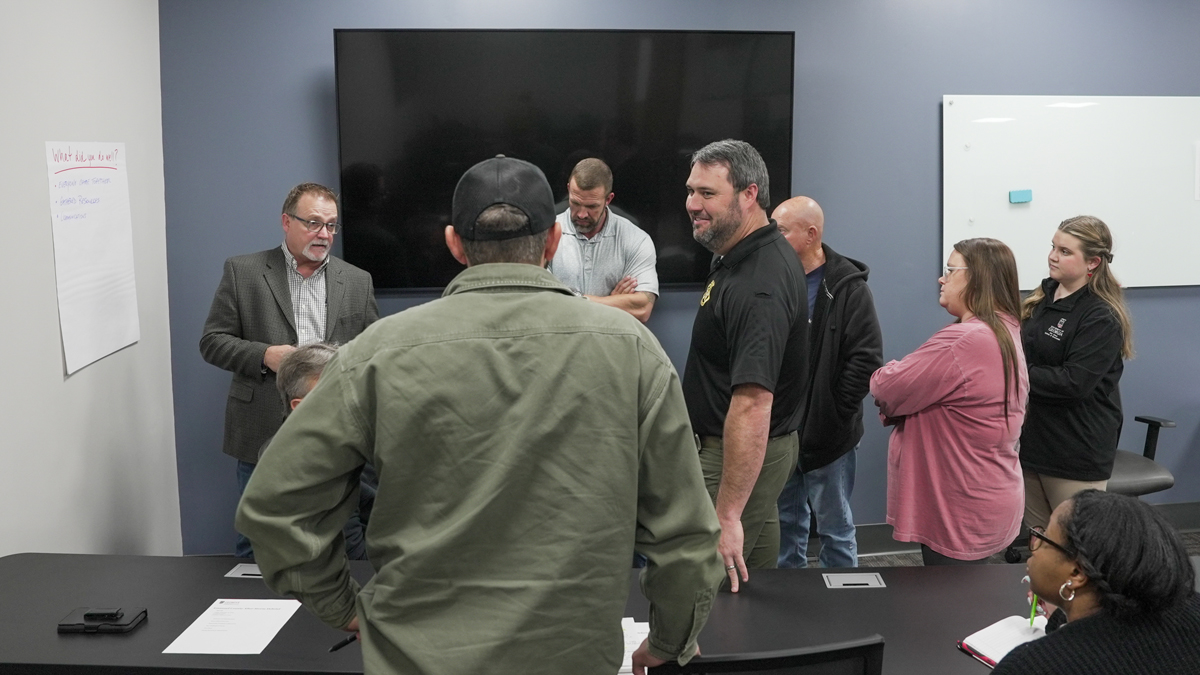
People who participated in Emanuel County’s response to Hurricane Helene met with PROPEL Rural Scholars in Swainsboro to talk about their community’s experience. (Photo by Sara Ingram)
“Seeing everything in person and meeting with the community really put it into perspective,” said Taylor Siefken, a fourth-year political science student. “The things we saw, like the debris collection site, represented only a fraction of what Emanuel County experienced but also highlighted a lot of the challenges rural communities face in disaster management.”
The debriefing meeting focused on three key questions: what did the community do well, what did they learn, and what would they choose to do differently in a future emergency?
Meeting attendees listed their community’s strengths, including underground fiber internet, robust communication with the public via social media and community-wide efforts of neighbors helping neighbors. They spoke of the need for more generators for county wells, more equipment such as skid steers, and pre-event contracts with companies to clear debris.
The students used the meeting’s feedback to develop recommendations for the county’s water supply, logistics, communications and equipment for the future.
“I was impressed with the questions the students asked and their eagerness to learn. Their help was valuable,” said Emanuel County Public Safety Coordinator Courtney Terwilliger. “You know, when you’ve known something your whole life and you’ve been accustomed to it, sometimes you don’t see things. The students brought a lot of objectivity.”
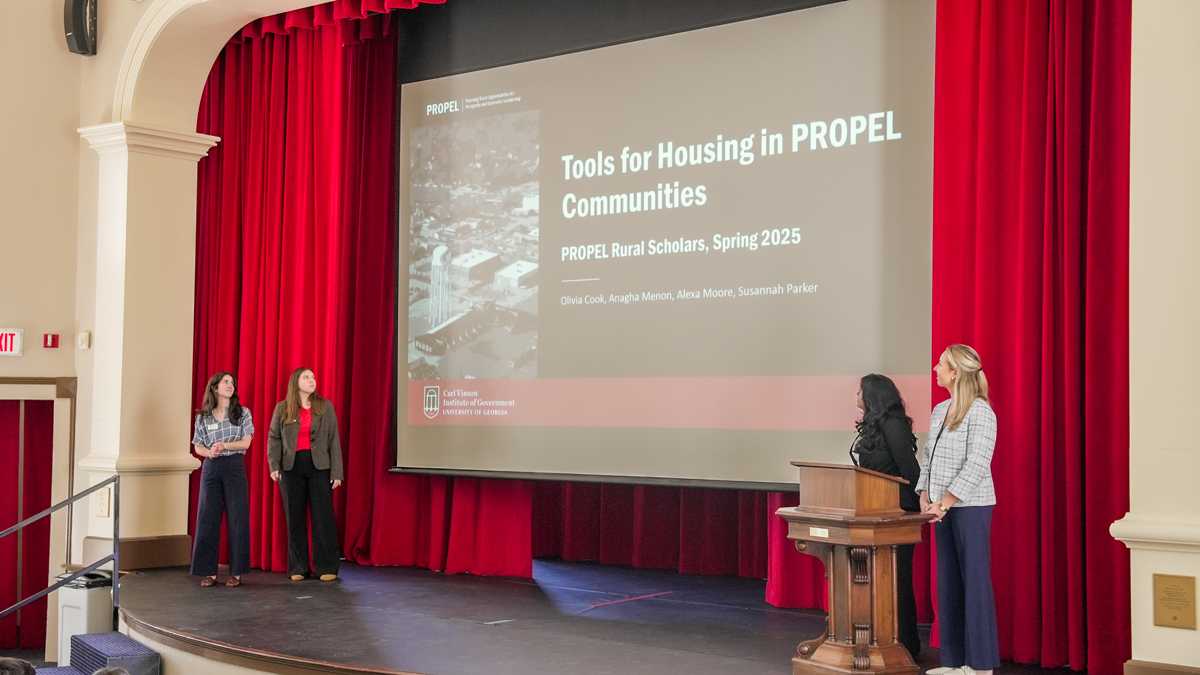
UGA students make an impact in rural Georgia communities
In the program’s third year, 15 UGA undergraduate students learned about rural Georgia and worked alongside UGA Public Service and Outreach mentors and community leaders on applied research projects in communities across the state.
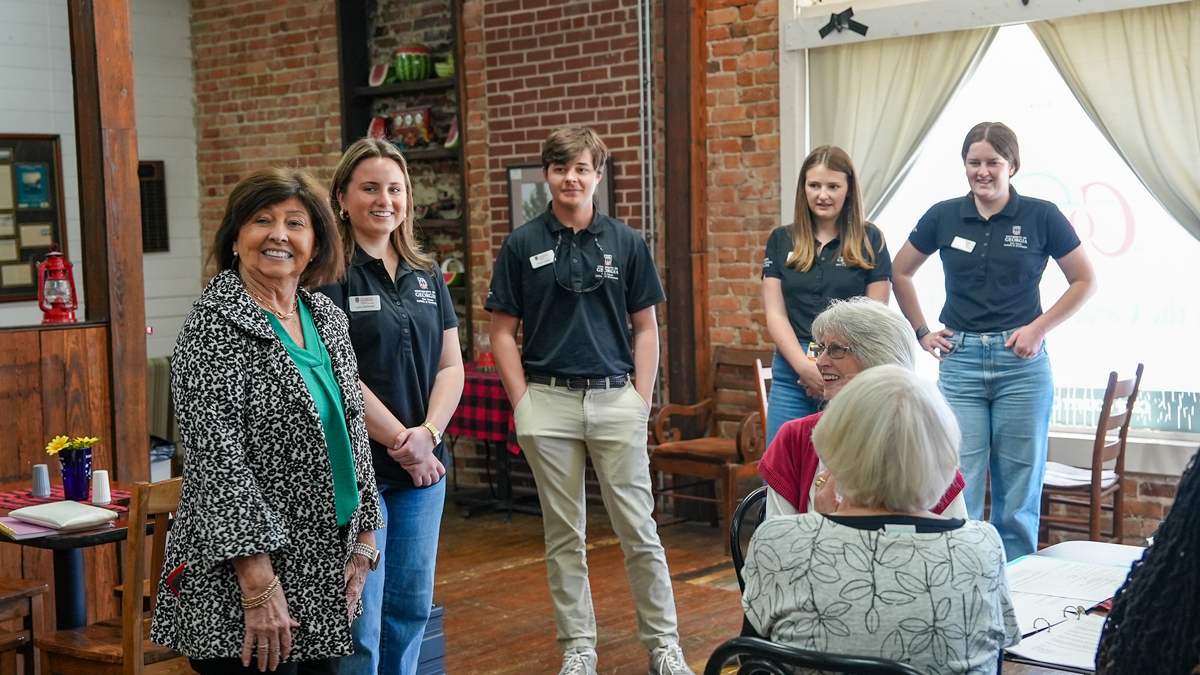
PROPEL Rural Scholars help Crisp County juice up tourism with museum best practices guide
This spring, University of Georgia undergraduate students participating in the PROPEL Rural Scholars program helped one Georgia county explore ideas to juice up tourism by creating a best practices guide for rural specialty museums.
